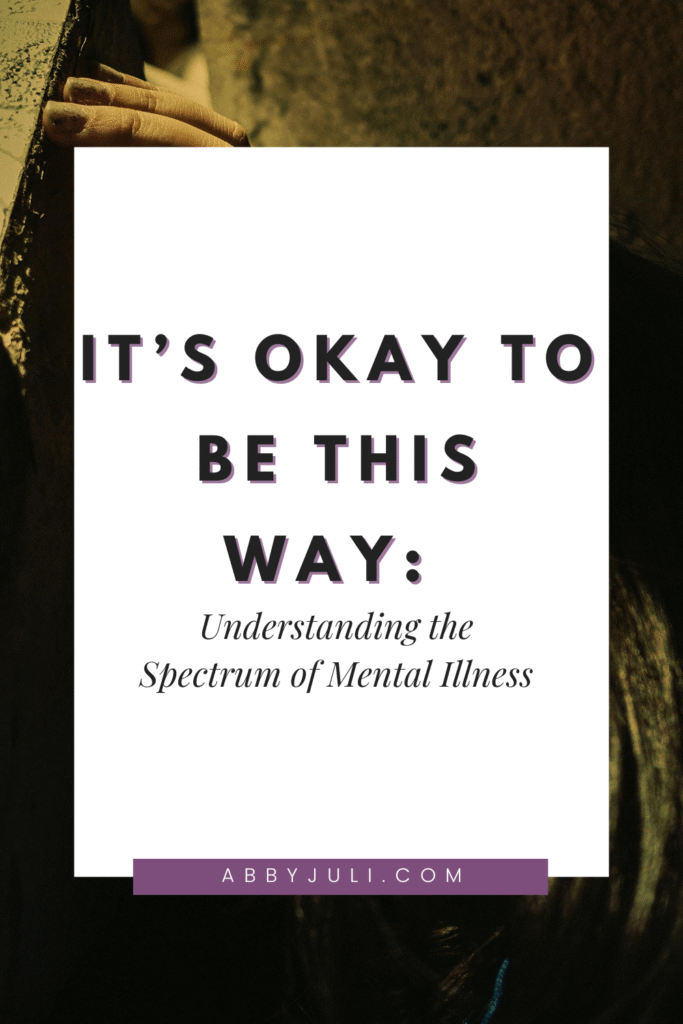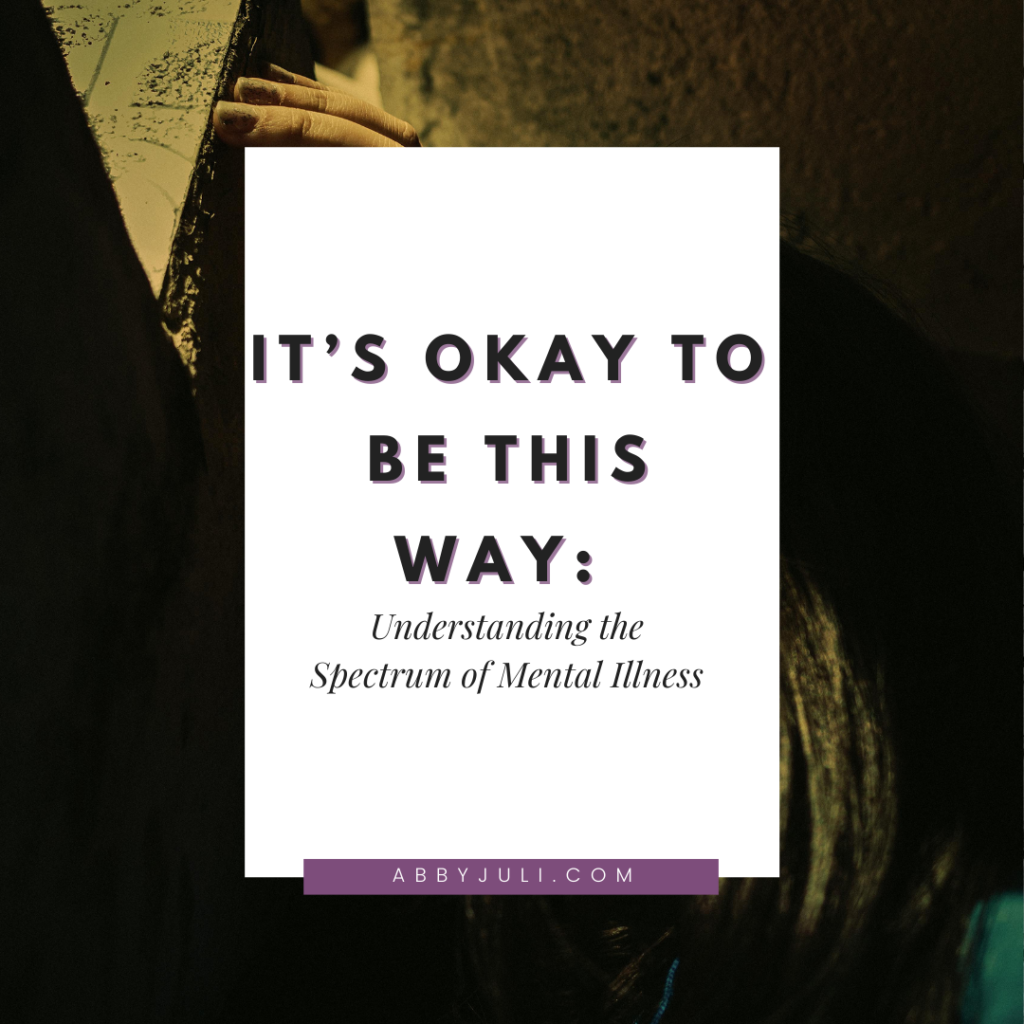
The other night, my mom and I watched a movie where one of the main characters—a mother—was severely autistic. She couldn’t speak more than a few words and often had intense meltdowns. Watching it was emotional, and honestly, a little scary.
It made me stop and think.
Not in a judgmental way—but in a grateful way.
I realized how wide the range of mental health experiences really is. I’ve always known I struggle with anxiety and depression, but watching someone experience such a different level of mental and emotional challenge put things into perspective. It reminded me that mental illness isn’t one-size-fits-all—it’s a spectrum.
🌤️ High-Functioning Mental Illness
Some people (including me) fall under what’s often called high-functioning. We get up, go to work, handle our responsibilities, and maybe even look like we’ve got it all together.
But inside, there’s still a storm.
There are still the racing thoughts, the fatigue that hits out of nowhere, the anxious overthinking, or the emotional burnout that doesn’t quite show on the surface. We push through, sometimes so well that even we forget how heavy things feel.
Just because we can function doesn’t mean it’s easy.
🌧️ Moderate Struggles
Then there are those whose symptoms start to affect daily life in noticeable ways. It’s harder to keep up with everything—work, relationships, self-care. Motivation fades. Concentration slips. The person might not look “sick,” but they’re silently fighting to stay afloat.
This is where many people start to feel guilty—like they’re “not doing enough” or that others “have it worse.” But pain doesn’t need to be compared to be valid.
🌪️ Severe Mental Illness
And then there are the individuals whose mental illness is truly disabling.
They might need full-time care. Some can’t communicate easily, or they lose touch with reality through psychosis. Others experience deep depression that keeps them from eating, showering, or leaving bed.
These experiences can look frightening to those who haven’t lived them—but they deserve understanding and compassion, not fear or pity.
💛 Gratitude and Compassion Can Coexist
After watching that movie, I couldn’t help but feel lucky for where I’m at. My mental health journey has its ups and downs, but I can still live, work, love, and create. That’s something I don’t take lightly anymore.
But this gratitude doesn’t erase my struggles—it just reminds me to approach them with more kindness.
It’s okay to be high-functioning.
It’s okay to have bad days.
It’s okay to need rest or therapy or medication.
And it’s okay to be grateful for your stability, even if others have it worse.
Because wherever you fall on the spectrum, your experience matters. You matter.
🧠 A Note on Mental Illnesses
I write about anxiety and depression mainly because those are my own diagnoses and what I personally live with. But there are many other mental illnesses people experience or are born with, such as:
- Autism Spectrum Disorder (ASD): Differences in social communication, sensory sensitivity, and routines. Some people are nonverbal, while others are highly verbal and independent.
- Bipolar Disorder: Intense mood swings between depressive lows and manic or hypomanic highs.
- Schizophrenia: Can involve hallucinations, delusions, and disorganized thinking.
- Obsessive-Compulsive Disorder (OCD): Repetitive thoughts or behaviors done to relieve anxiety.
- Post-Traumatic Stress Disorder (PTSD): Emotional or physical reactions tied to past trauma.
- Borderline Personality Disorder (BPD): Intense emotions, unstable relationships, and fear of abandonment.
- ADHD (Attention-Deficit/Hyperactivity Disorder): Trouble focusing, restlessness, or impulsivity that affects daily life.
- Eating Disorders (like Anorexia, Bulimia, or Binge-Eating): Emotional and behavioral struggles related to body image and control.
Each of these conditions affects people differently—no two experiences are the same. And while they can be challenging, many people live fulfilling, creative, and meaningful lives with the right support and understanding.
Note: This post was written with the help of ChatGPT. I am not a licensed professional—just someone sharing personal experiences and reflections to encourage understanding and self-compassion.

